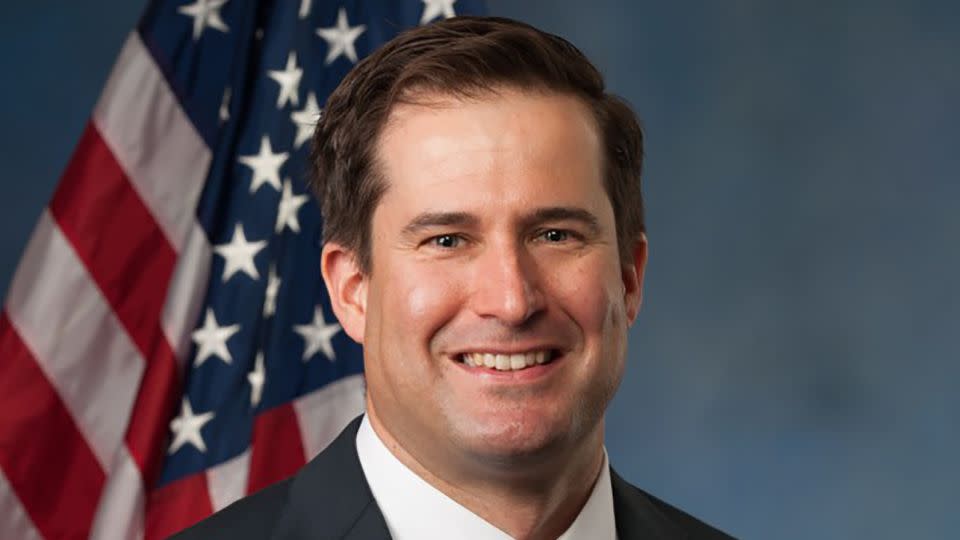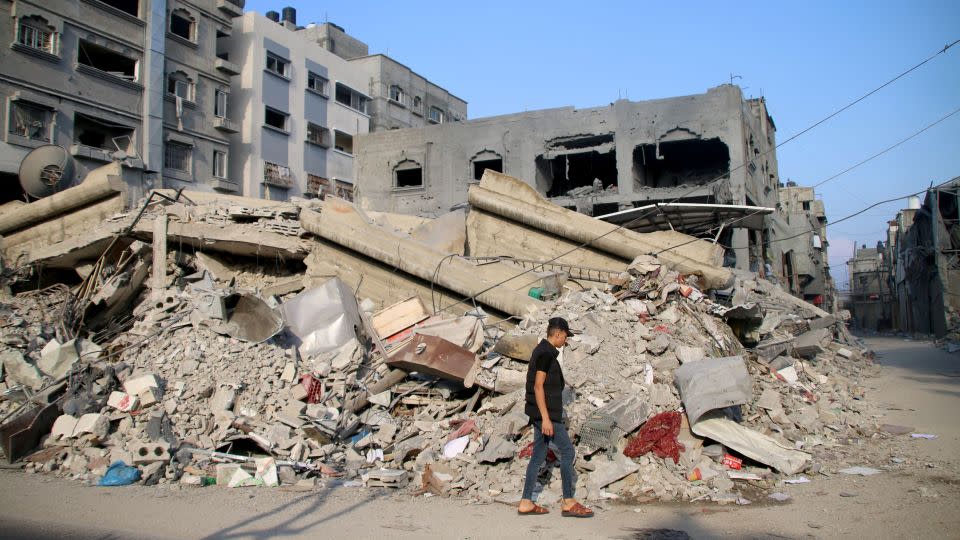Opinion: Netanyahu needs an end-game
Editor’s Note: Seth Moulton, a Democrat, is a Marine Corps veteran who represents Massachusetts’ 6th Congressional District. The views expressed in this commentary are his own. Read more CNN Opinion.
Twenty years ago this month, I was a young Marine lieutenant marching down a California street in an Iraq War victory parade. We had defeated Saddam Hussein and the Iraqi Army, and we thought it was all over.

But of course, it was not. Twenty years later, American troops are still in Iraq.
Israel is about to start an invasion of Gaza with the same mission we had in those early days in Iraq: defeat the enemy, or in Netanyahu’s words, “crush and eliminate” Hamas.
But the lesson America quickly learned in Iraq and Afghanistan was that you have to have a plan for the day after. Outside the southern Iraqi city of Najaf during the invasion, then Colonel David Petraeus famously asked, “Tell me how this ends….”
The next year, I found myself in that same city Petraeus had conquered, trying to win it back. It was my second of what would become four tours in Iraq, facing far worse combat than we saw during the invasion.
By that time, the insurgency was entrenched, much like Hamas is in Gaza today, and we had to fight, block by block, to root it out.
One day in the summer of 2004 reminds me of how difficult this was and why you always have to consider what comes next.
My company was called to rescue an Army Special Forces detachment from a school in which they took serious casualties. After we helped evacuate their wounded and dead, my Marines and I assaulted the building with a platoon of Recon Marines in support.
But with insurgents throwing grenades from the roof and rolling them down the stairs, we took casualties ourselves, and I made the difficult decision to withdraw my platoon — and call in an air strike to level the building.
It was the right decision to kill insurgents without losing more Marines, but leveling a school doesn’t win you a lot of hearts and minds. And this was just one building, a mere two stories tall, and we were fairly confident there were no civilians inside.
Now look at Gaza by comparison: a city five times the size, with buildings ten times as high, and Hamas fighters using human shields -— including hostages from Israel, America, and other countries — at every turn.
Then there’s the question of what comes next. After brutal weeks of battle in Najaf, our more complicated work began: winning over the rest of the Iraqi population so that peace could be permanent.
That meant months of diligent, tedious work doing everything from creating jobs, to training the Iraqi Army, to rebuilding hundreds of buildings, like that school I destroyed with a 500-pound bomb, all the while keeping remaining pockets of the insurgency at bay.
To be sure, there are some fundamental differences between Israel’s war with Hamas and America’s war in Iraq. Israel is responding to an attack from within by a terrorist organization seeking to wreak havoc in Israel and across the region. In contrast, a coalition of countries invaded Iraq seeking to displace a brutal dictator who we thought had weapons of mass destruction— and in the process, we created an insurgency.
In one case, the insurgency was the cause of the conflict, and in the other, the insurgency was the result. But we nevertheless learned valuable lessons that Israel should take seriously. Countering an insurgency is Israel’s task in Gaza just as it was America’s challenge in Iraq and Afghanistan.
Israel’s military victory in Gaza will be hard enough, but its government should explain their plan for the day after, a plan for the future of Gaza. If they simply kill a lot of Hamas terrorists and leave Gaza a smoldering mess, they’ll have the same problem they do today — much like America did after the first time we conquered Najaf.
One of the reasons fighting terrorists is so much more difficult than fighting a regular army is that every minute we were in Najaf, whether during combat or reconstruction, we had to keep in mind that fundamental equation of counter-insurgency: You should never create more insurgents than you kill.

Famed US general Stan McChrystal estimated that this “insurgent math” is ten to one: for every innocent person you kill, you create ten new enemies. So, let’s be generous to the Israeli Army and say that they kill 1,000 Hamas fighters in the first two weeks of brutal fighting, and only kill 150 civilians by accident in the process — generous odds given Hamas’ ruthless disregard for innocent lives. Well, Israel has just recruited 50% more insurgents than they’ve killed.
This brings us back to the beginning of any counter-insurgency campaign, which General Petraeus describes as the first step in winning: you have to get the big ideas right.
Israel’s leaders need to answer these big, difficult questions before subjecting more young lives, on both sides, to a brutal war:
How will you define military victory? (You can’t recruit more insurgents than you kill.)
What is the exit strategy for your troops? (Your troops want to know.)
What is the sustainable, political solution for the Gaza Strip? (It can’t be returning to the status quo, which obviously hasn’t worked.)
If Israeli leaders, from Prime Minister Benjamin Netanyahu down, cannot answer these questions, they are plunging their young soldiers into another “forever war” like we created for ourselves in Iraq and Afghanistan.
If they don’t have a durable civil-military endgame, they had better be prepared to explain to Israeli parents, 20 years from now, what their kids died to achieve.
Our First Marine Division motto in Iraq, under General Mattis, was “no better friend, no worse enemy.” I want Hamas to know no greater enemy than the Israeli Army, and I want to see every Hamas fighter defeated.
But if Israel can’t prove the first part, too — that “if you work with us, you will find no greater friend” — then we will soon see plenty of new Hamas terrorists taking the places of those who are killed.
There are a lot of peace-loving Palestinians in Gaza who loathe Hamas, but it’s up to the Israeli Army to prove themselves better friends.
I hope Israel succeeds against enormous odds, but they have to have a better plan than simply killing a lot of people.
Nobody wants to see five-year-old Palestinian kids killed in the crossfire with Hamas, especially if their deaths only recruit more terrorists.
And nobody wants to see five-year-old Israeli kids dying, in the same forever war, 20 years from today.
For more CNN news and newsletters create an account at CNN.com
